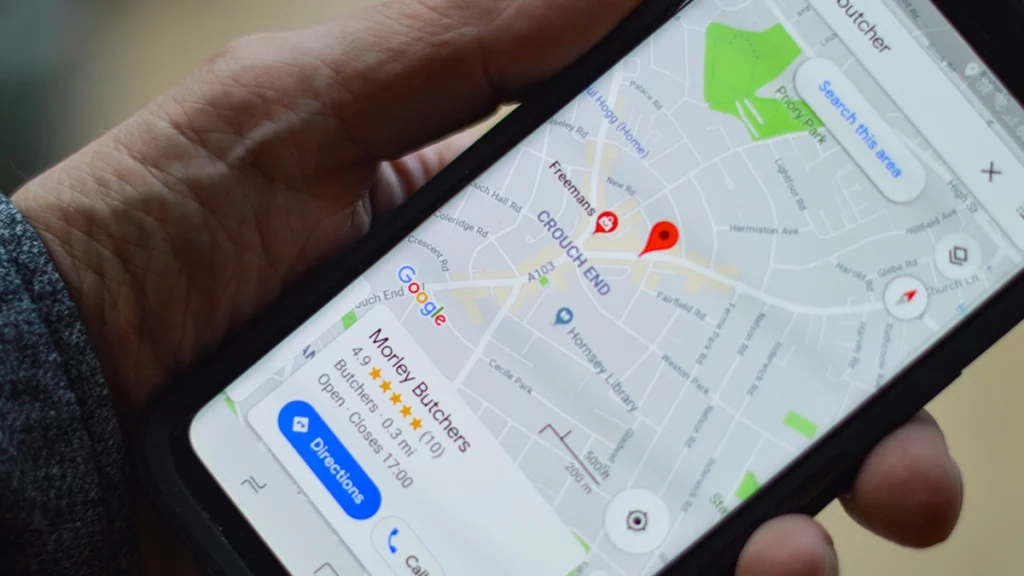Follow our easy to step-by-step guide to local SEO keyword research.
Local keyword research is crucial in optimising your website for local search. Here’s a step-by-step guide on how to conduct effective local keyword research.
We’ll consider a local bakery in London called “London Sweets & Treats.” The goal is to conduct local keyword research to optimise the bakery’s website for London-based customers.
1. Understand Your Business and Audience
- Define your products or services and understand your target audience.
- Identify specific locations or regions you want to target.
Example:
- “London Sweets & Treats” specialises in custom cakes, pastries, and artisanal desserts.
- The target audience includes individuals planning events, local businesses, and residents looking for high-quality baked goods in London.
2. Brainstorm Seed Keywords
- Generate a list of broad, general keywords related to your business.
- Include products, services, and terms relevant to your industry.
Example:
- Custom cakes London
- Artisanal desserts
- London bakery
3. Use Google Autocomplete
- Start typing your seed keywords into Google search.
- Take note of the autocomplete suggestions, which often reflect common local queries.
Example:
- “Custom cakes in London”
- “Best artisanal desserts London”
- “Local pastry shop London”
4. Explore Related Searches
- Scroll to the bottom of the search results page to find “Searches related to…”.
- Identify additional keywords that may be relevant to your business.
Example:
- “London bakery delivery”
- “Wedding cakes London”
- “Birthday cake near me in London”
5. Utilise Google Keyword Planner
- Access Google Keyword Planner (requires a Google Ads account).
- Enter your seed keywords to get suggestions and insights.
- Filter results based on location to get local keyword ideas.
Example:
- Use Google Keyword Planner to get insights on search volumes and competition for terms like “London bakery” and “custom cakes London.”
6. Spy on Competitors
- Identify local competitors in your industry.
- Analyse their websites and content to discover the keywords they are targeting.
Example:
- Analyse websites of local competitors in London, such as “London Cake Co” or “Sweet Delights London.”
- Identify keywords they target, such as “bespoke cakes” or “London wedding desserts.”
7. Localise Your Keywords
- Add local modifiers to your keywords (e.g., city names, neighbourhoods).
- Consider variations like “near me” or location-specific terms.\
Example:
- “Custom cakes in central London”
- “Artisanal desserts delivery London”
- “London pastry shop reviews”
8. Explore Online Forums and Communities
- Visit local forums or community websites related to your industry.
- Identify language and terms used by locals when discussing products or services.
Example:
- Visit local London-based foodie forums or community websites.
- Identify phrases locals use, like “best London bakery” or “London cake recommendations.”
9. Check Social Media
- Monitor social media platforms for local discussions.
- Look for hashtags and phrases used by your local audience.
Example:
- Monitor hashtags on social media platforms used by London residents.
- Discover terms like #LondonBakery or #LocalDessertsLondon.
10. Ask Customers and Staff
- Speak with your existing customers and staff.
- Inquire about the terms and phrases they commonly use when looking for your products or services locally.
Example:
- Engage with customers and staff to understand common local terms.
- Collect insights like “popular wedding cakes in London” or “favourite pastries in the city.”
11. Use Local SEO Tools
- Utilise local SEO tools like Moz, BrightLocal, or Ahrefs.
- These tools can provide insights into local search volumes and keyword difficulty.
Example:
- Leverage local SEO tools like BrightLocal or Moz Local for insights specific to the London market.
- Discover additional keywords like “London dessert catering” or “local bakery events.”
12. Create a Local Keyword List
- Compile your researched keywords into a list.
- Organise them based on priority and relevance to your business.
Example:
- Compile the selected keywords into a list:
- Custom cakes in London
- Artisanal desserts delivery in London
- London pastry shop reviews
13. Check Trends and Seasonality
- Consider seasonal variations in local search behaviour.
- Check Google Trends to understand when specific keywords are more popular.
Example:
- Consider seasonal variations in London, such as “Christmas desserts in London” or “summer pastry specials in the city.”
- Use Google Trends to identify trending searches in London.
14. Test and Refine
- Implement the selected keywords on your website.
- Monitor their performance using analytics tools.
- Regularly review and refine your local keyword strategy based on changes in search behaviour and business priorities.
Example:
- Implement selected keywords in meta tags, headers, and content on the bakery’s website.
- Monitor performance using analytics tools.
- Regularly update the keyword strategy based on customer feedback and changes in search behaviour.


